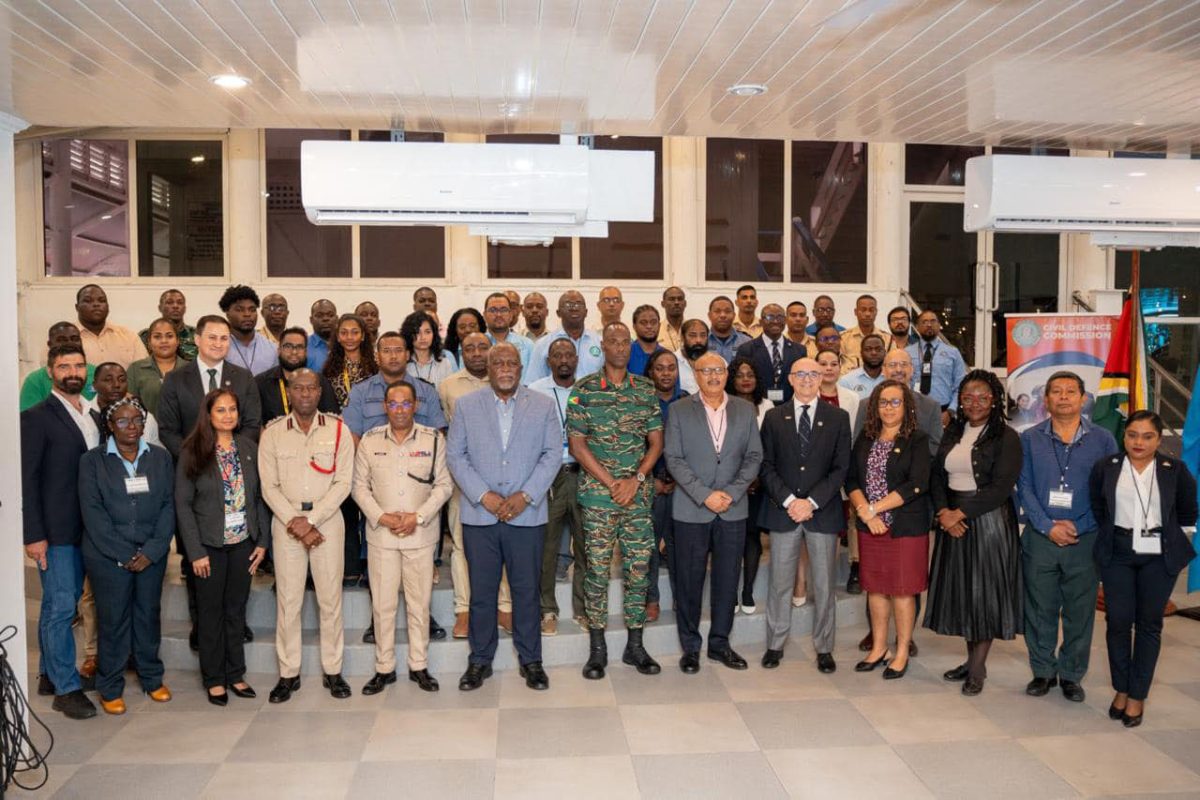A four-day workshop on oil spill contingency planning began yesterday, according to the Department of Public Information (DPI)
The workshop, being held at the Guyana Police Force Headquarters, is being conducted by the Regional Activity Centre/Regional Marine Pollution Emergency, Information, and Training Centre for the Wider Caribbean Region (RAC/REMPEITC-Caribe).
During the opening ceremony yesterday, Prime Minister Mark Phillips emphasised the critical importance of the workshop.
“This workshop presents a distinct opportunity for us to develop a deeper understanding of oil spill contingency planning and to refine the skills required to effectively implement our national oil spill contingency plan,” the PM said.
He further noted that Guyana has had a national oil spill contingency plan since 2020, which was tested in an exercise in 2022.
In addition, the PM said that the workshop coincides with the ongoing drafting of the National Oil Spill Prevention and Management Bill 2024.
“We are at the stage where we want to put a bill before the National Assembly to make this whole issue lawful in Guyana. This workshop serves as a precursor to the passage of this critical legislation, further solidifying our commitment to oil spill preparedness and response,” the PM said.
Underscoring the importance of preparedness in mitigating the risks associated with the burgeoning oil and gas industry in Guyana, Phillips stated that the repercussions of an oil spill could be far-reaching and long-lasting, impacting everything from tourism and fisheries to the overall health of the natural environment.
As a result, he pointed out that preparedness involves a comprehensive understanding of potential risks, a robust response framework, and the necessary resources and capabilities to act swiftly.
DPI said that the workshop would see participants being exposed to mechanisms such as the readiness evaluation tool for oil spills, which will help identify gaps in the national contingency planning and enhance overall response capabilities.
RAC/REMPEITC-Caribe representative, Matthew Martin commended the progress made by the government in Guyana’s preparedness efforts.
“We have got a great start from what is already there with the work that has been put in so far for increasing preparedness for oil spill response, and over the four days, we are going to look at how we can improve the existing national oil spill contingency plan and become even more prepared, not only in Guyana but in the region,” Martin said.
The workshop is sponsored by the International Maritime Organization (IMO), the United Nations Environmental Programme Regional Coordination Unit, and RAC/REMPEITC-Caribe.
Critics have argued that with December marking the fifth anniversary of oil production, the government has moved slowly on contingency planning and the country lacks sufficient resources to respond in any significant way should a spill occur. The critics say that mainly desktop exercises and near coastal demonstrations have been held with booms and other equipment but nothing near to what would be required was a spill to occur offshore.








